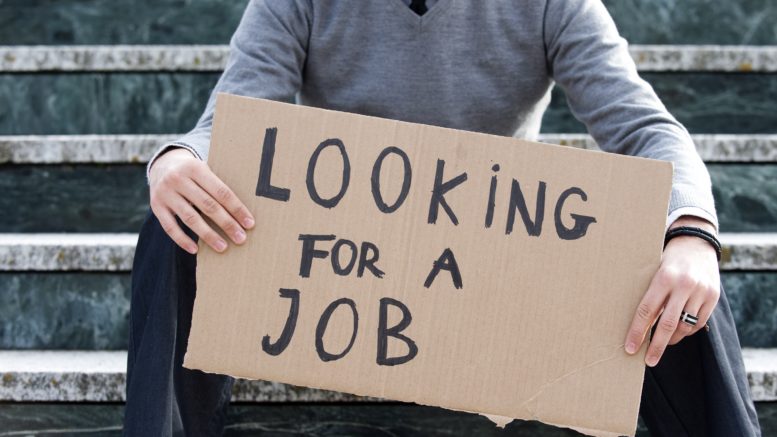A million more people could be unemployed by the end of 2018 – and that’s a conservative estimate, according to a new report released by Momentum and Unisa.
Speaking on the launch of the latest Household Financial Wellness Index, the groups noted that if the economic performance of the 2011 to 2016 period were extrapolated up to 2018, a fairly gloomy picture emerges with respect to 2017 and 2018.
The study highlighted that GDP growth rates declined from 3.3% in 2012 to 0.3 percent in 2016 and are expected to be below 1% in 2017 and 2018, and that during the past year economists have been downgrading their economic growth expectations for 2017 and 2018 continuously.
It also noted that the production elasticity of employment – which indicates the elasticity between employment growth and GDP growth – declined from 0.7 in 2011 to -0.2 in 2015 and is expected to be below 0.3 in 2017 and 2018.
“The impact of the increasing economic stagnation on household finances is clear from the results of the Momentum/Unisa Household Financial Wellness Index results for the period 2011 to 2016,” it said.
“During this period Financial Wellness index rates increased marginally, namely from 64.1 in 2011 to 67.3 in 2016, constituting about 5% growth over this period.”
“Also, during this period real GDP grew by about 10% giving rise to a low production elasticity of Financial Wellness ratio.”
“Given that GDP growth is expected to stagnate over the period 2017 to 2018, it is being expected that financial wellness levels will also stagnate over this period showing lower growth rates than the low expected GDP growth rates.”
What to expect in 2018
Given the relatively gloomy economic picture emerging from the figures shown above the question could be asked as to what the implications are for consumers during the period 2017 and 2018.
Some of the implications highlighted by Unisa and Momentum include:
- It’s going to be tougher to get a job and hang on to a job during the period 2017 and 2018. “It’s clear from available employment figures that many businesses are struggling to survive with the implication that they will on average rather shed more jobs than create more jobs”
- Consumers should prepare for unemployment given the current situationwhich analyses have shown not to be a cyclical downswing but a self-made recession which cannot be escaped by means of the regular fiscal economic stimuli. “The true cure for a self-made recession is rather political, economic and policy certainty which do not appear to be on the cards for the immediate future.”
- Many households will be experiencing much quicker expenditure than income growth which will make it increasingly difficult for many households to maintain their current financial wellness levels. Effective budgeting and sticking to such budgets will be increasingly important to survive financially.
- Growing unemployment, poverty and inequalities will exacerbate existing political, economic, socioeconomic and social instabilities in South Africa. This will in all likelihood exacerbate the current political and economic volatilities and uncertainties.
- The historically low savings rates, low levels of entrepreneurship and inadequate skills among South African consumers make South African consumers particularly vulnerable to economic stagnation during 2017 and 2018. The consumer situation will be even worse should there not be a significant economic turnaround by late 2018 for the better.
- Persisting high levels of poverty and inequality together with the current high levels of economic stagnation is increasingly impacting negatively on the legitimacy of institutions such as government, the public sector, the Reserve Bank and courts in South Africa. This could be clearly seen from results obtained by means of the 2015 and 2016 Momentum/Unisa Momentum Financial Wellness survey results. This breakdown in legitimacy is increasingly giving rise to a legitimisation crisis which could have dire societal implications during the years to come.
“The question could be raised as to whether the current adverse economic situation could be turned around over the short-term giving rise to better economic and socioeconomic outcomes during the next two years,” it said.
“The answer to this is that it could be turned around but that it is highly unlikely, given that the downside risks are, at present and the foreseeable future much more than the upside opportunities.”
“There is at present a great likelihood that further downside risks not mentioned above such as further credit rating downgrades, even lower economic and employment growth rates, increased levels of political and social instability levels, etc will realize which will make the expected negative economic outcomes described above to be somewhat optimistic.”
A million more South Africans expected to be unemployed by 2018 – study



